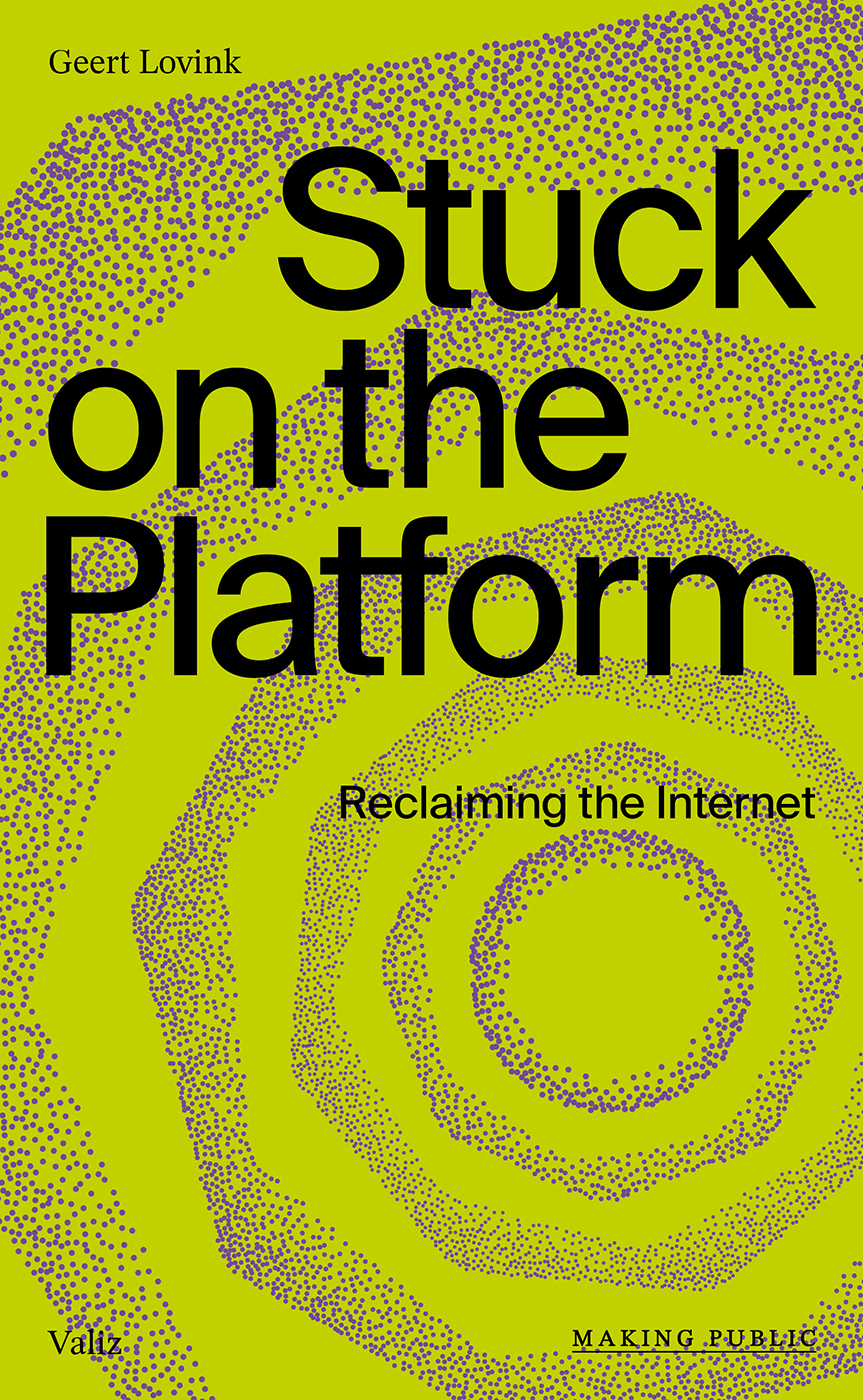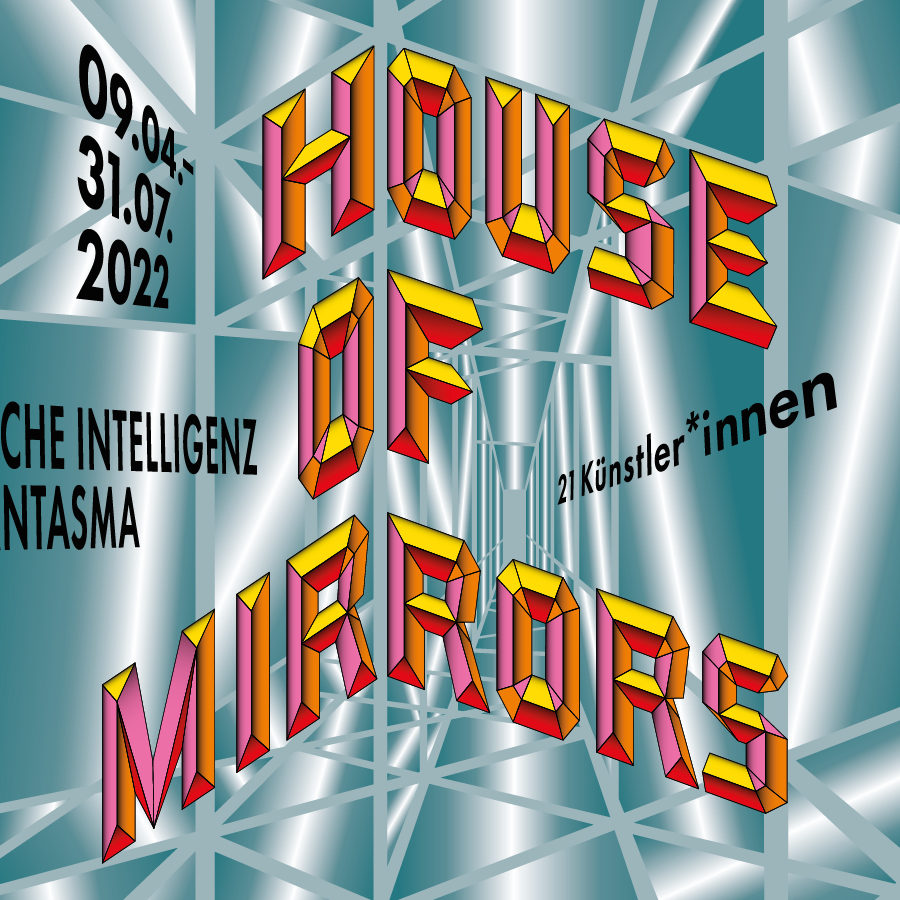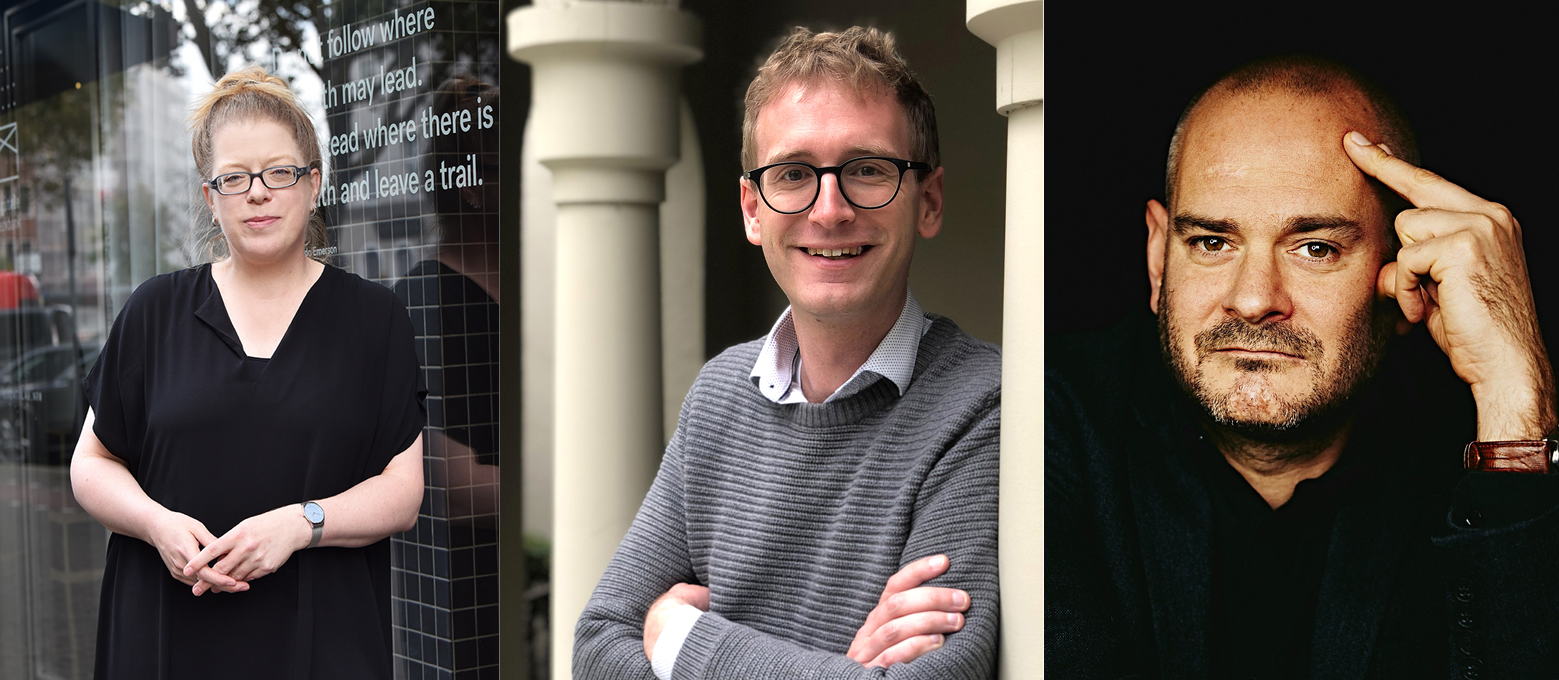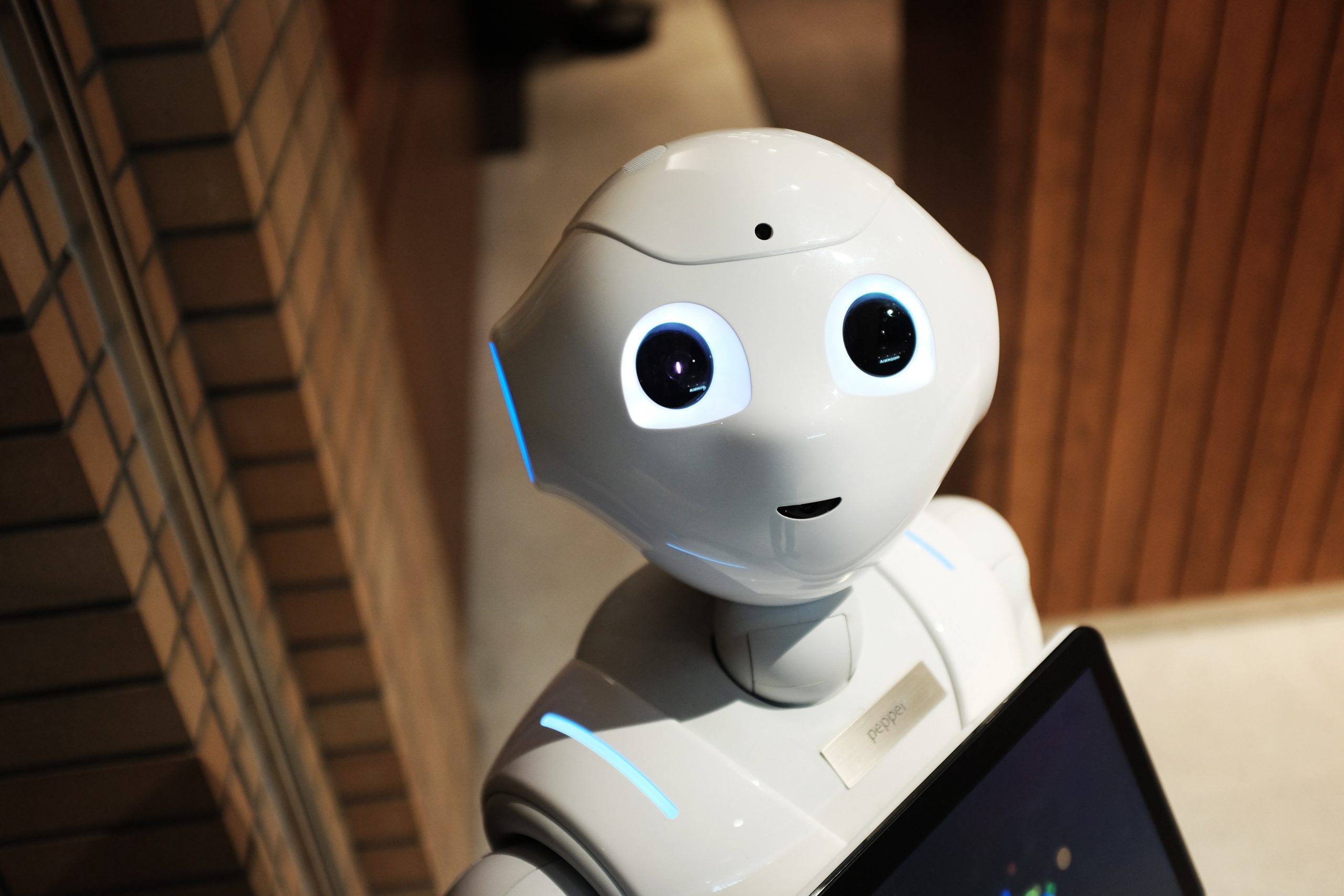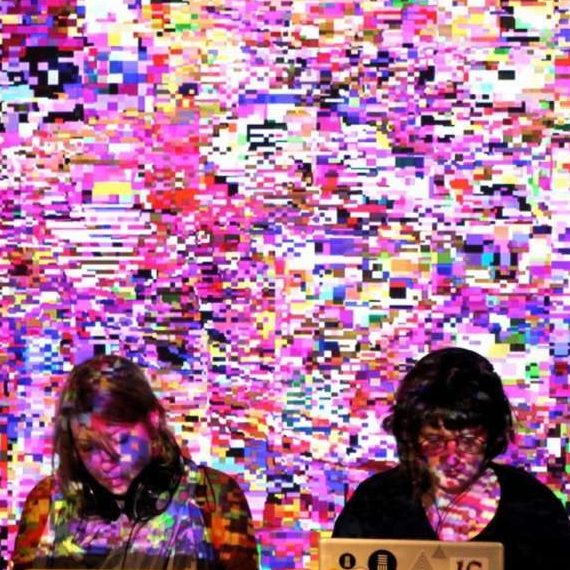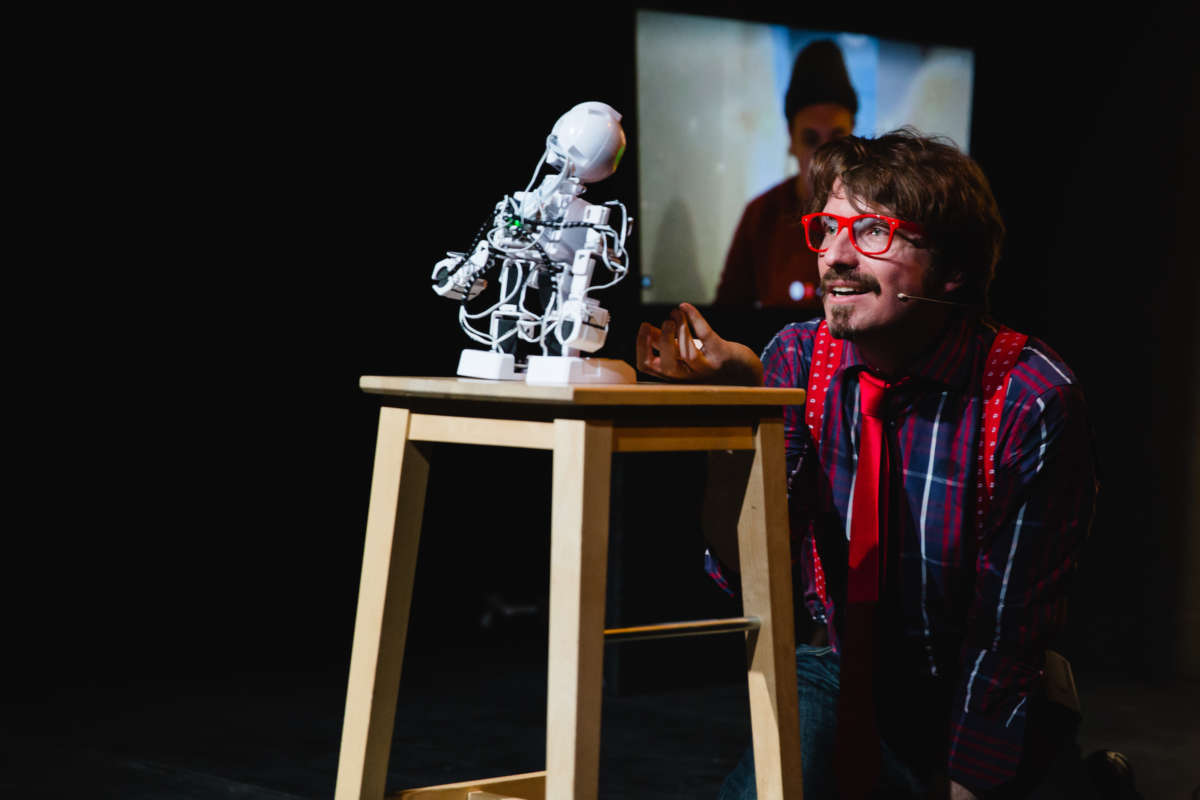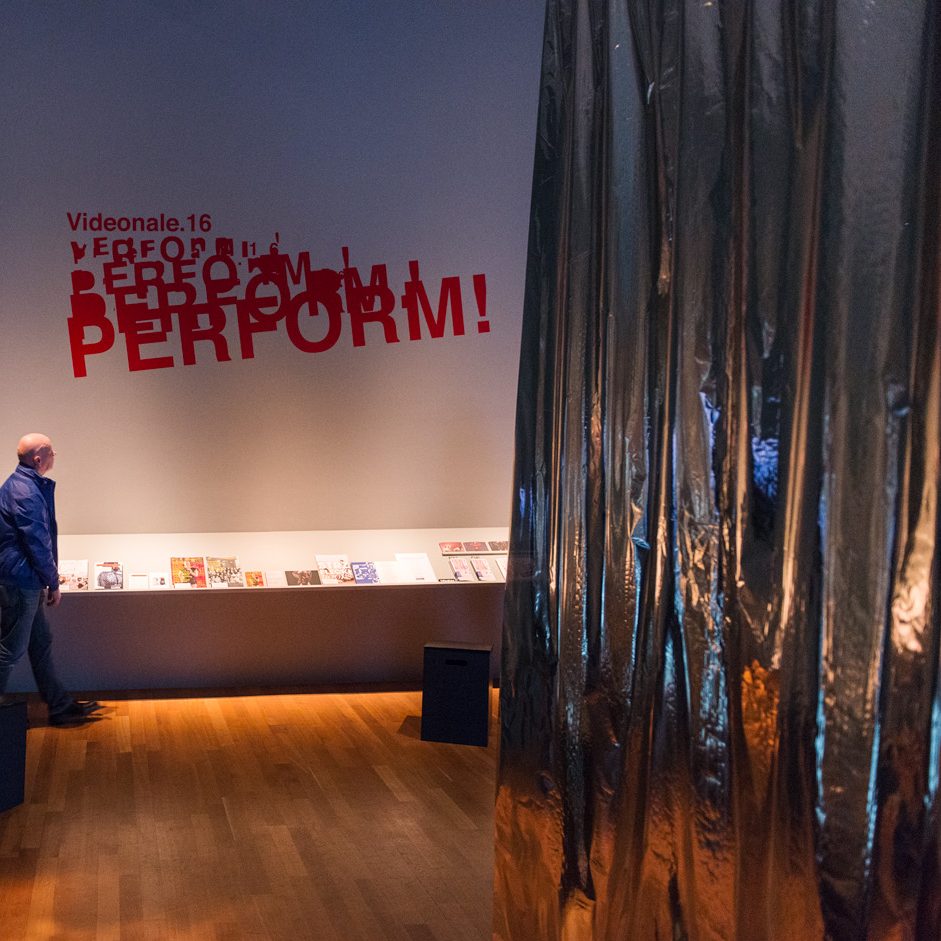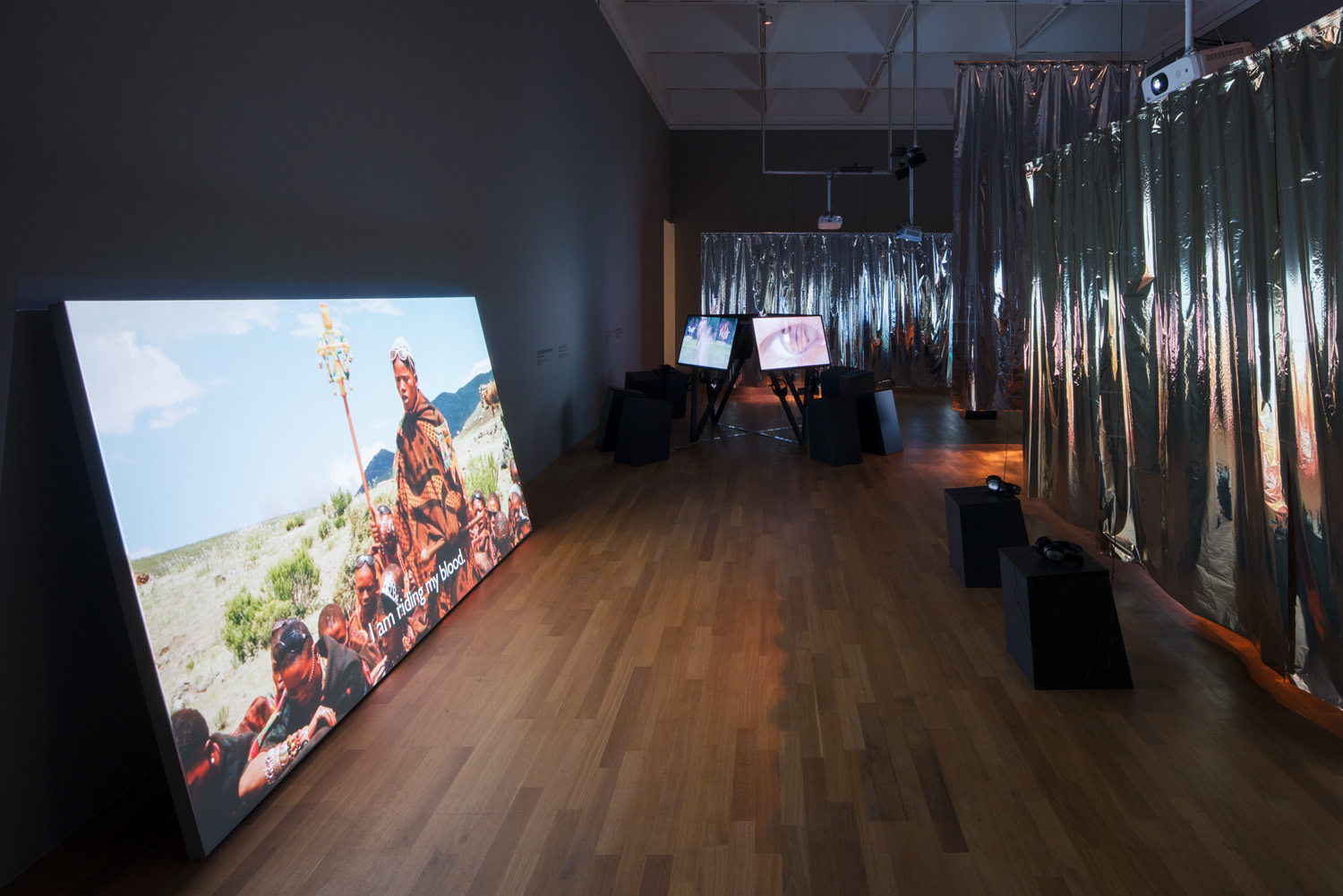Geert Lovink in conversation with Annekathrin Kohout „Stuck on the Platform – Reclaiming the Internet“
FFT Düsseldorf – Forum Freies Theater
FR, DECEMBER 16, 2022, 18:30 H
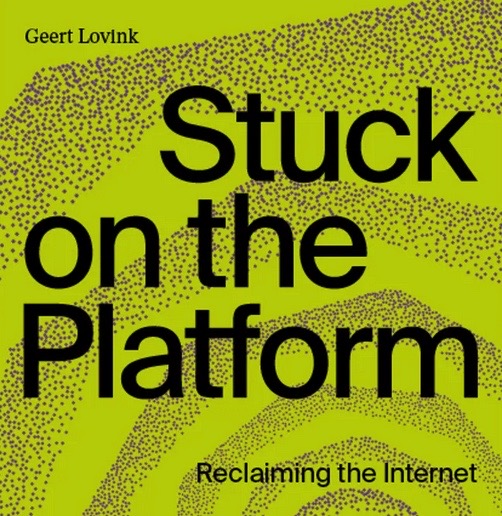
The media theorist and net critic Geert Lovink has been observing developments in the digital world with growing concern for years. He warned early on about platform capitalism and urged us to delete our Facebook profiles. His analyses show how interaction in social media can produce a special kind of sadness. Nevertheless, he has not yet lost faith in a better web. His new book “Stuck on the Platform. Reclaiming the Internet” (transcript, 2022) has just been published in German. In it, he calls on us to develop “our own versions of the technosocial”. In conversation with media scientist Annekathrin Kohout (“Nerds. Eine Popkulturgeschichte”, “Netzfeminismus. Digitale Bildkulturen”), Geert Lovink presented the German translation of the book for the first time.
After the talk at the FFT Düsseldorf, all interested parties were invited to join a public viewing session: Together we watched the livestream of internil’s performance Blackout in the foyer and interacted via chat bot with the stage of Theaterdiscounter Berlin.
More info about Blackout
Our guests
Geert Lovink is a media theorist, internet critic and author of, among others, Dark Fiber (2002), Zero Comments (2007), Under the Spell of Platforms (2017) and Digital Nihilism. Theses on the Dark Side of Platforms (2019) among others. Lovink is the founding director of the media-theoretical Institute of Network Cultures (INC) based at the Hogeschool van Amsterdam, which has been dedicated to culture in virtual networks as a social phenomenon since 2004. Since 2021, Lovink has also been Professor of Art and Network Cultures at the University of Amsterdam.
Geert Lovink in the Collective Chronicle of Thoughts and Observations, 2017
More info about the Institute of Network Cultures (INC)
Annekathrin Kohout is a media scholar and co-editor of the book series “Digital Image Cultures” and the journal POP. Kultur und Kritik and a member of the editorial board of the international Journal of Global Pop Cultures. Her book “Nerds. Eine Popkulturgeschichte” was published by C.H. Beck in 2022. She is currently a guest lecturer at the Institute for Media, Theatre and Popular Culture at the University of Hildesheim.
More info about POP. Kultur und Kritik
More info about Journal of Global Pop Cultures



